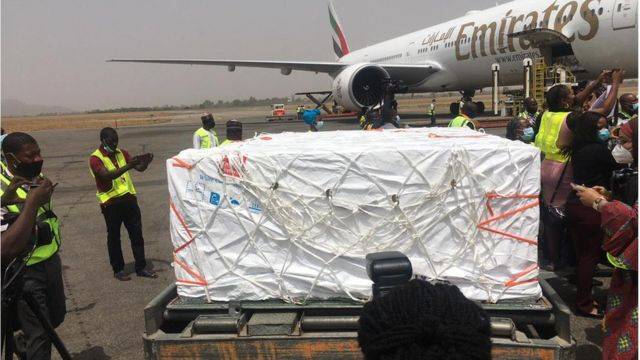FG blames insecurity, water pumps theft, on water scarcity in rural areas
The Federal Ministry of Water Resources (FMWR) has named insecurity and theft of water pumps, as major challenges to the provision of potable water supply in rural areas in the country.
Mr. Isaiah Ademoroti, the ministry’s Deputy Director, Rural Water Supply, said this disclosed this on Monday in Abuja.
“Due to the delay in handing over of some completed water points, we have seen the theft of pumps at various stages.
“Most of their targets is stealing the pumps, because they can easily get them and sell them off.
“For instance, something we are buying for almost N1 million, they may sell them off for between N200,000 and N400,000.
“In the cost of implementing the first phase of the project, we had to design a protection method for the pumps with the contractors, in which an iron concrete is used and sealed up in the ground.
“This makes it difficult for them to be stolen, so to break such concrete, it will take many hours.
“Also, we have agreed with the contractors to employ security to manage these water points to prevent theft,” he said.
The deputy director said due to insecurity, it was difficult to get to some hard-to-reach communities.
Ademoroti said that although risky, the ministry ensured that huge investments did not go to waste by ensuring value for money.
He added that some contractors might try to play smart, by not working with specifications, but they were however mandated to work to specifications.
Ademoroti said due to poverty and poor awareness, most community members were delayed in embracing the concept of ownership of these schemes though they were the beneficiaries.
According to him, the ministry has been intervening in the provision of potable water supply to rural areas, internally displaced person camps, and emergency situations.
“So far the total population that has benefitted shouldn’t be less than 1 million, because, during COVID 19, we implemented almost 500 boreholes, each borehole served at least 1,000 persons in each community.
“Sadly, these requests are what the Federal Government can provide, this is a huge challenge, and that is an area that the National Assembly can help in more allocation of funds to the FMWR.
“Because the rural population in Nigeria is not less than 50 percent, if we are to cater for them, we need huge investments for that.
“Health is wealth, water is wealth, if we know that, it means that the higher authorities should take it as a priority.
Water Situation in Nigeria
In Nigeria, according to UNICEF, contaminated water leads to diseases such as diarrhea, which annually kills more than 70,000 children below the age of five, Over 45,000 children under five die annually from diseases caused by poor access to water, sanitation, and hygiene, according to WHO data.
From major research and findings, it is understood that most children who suffered the mortality lived in rural areas, as development failed to reach the families, especially children in these areas.
UNICEF WASH specialist, Martha Hokonya, called for more investment in water supply, noting that the availability of safe drinking water contributes to increased health status.
UNICEF Communications Specialist in Nigeria, Geoffrey Njoku, pointed out that water is critical to children and human survival and therefore, must be accorded priority







